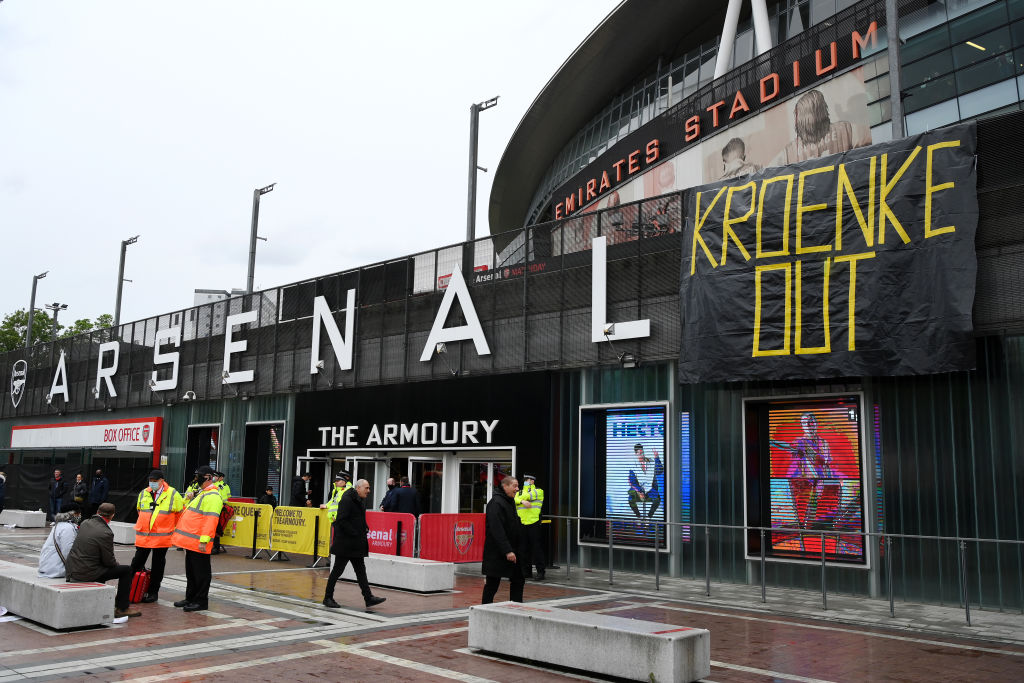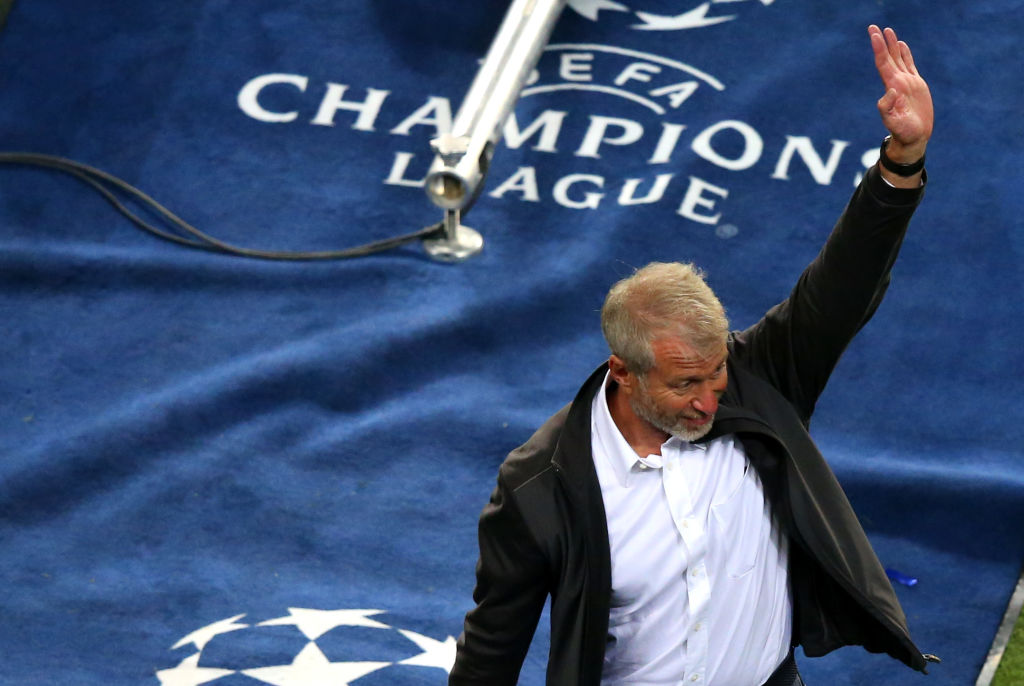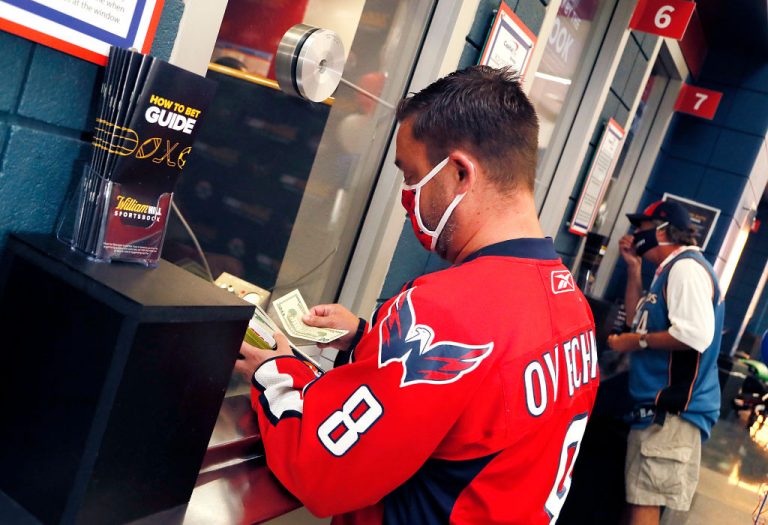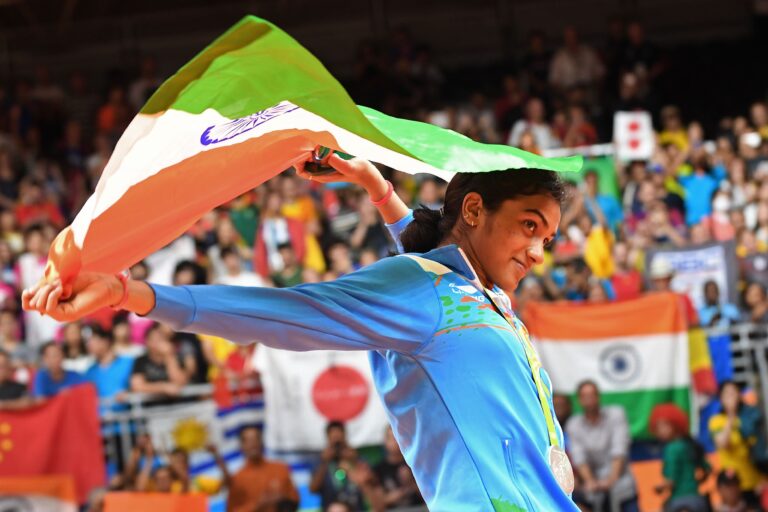The Soccer World Didn’t Need a European Super League – It Already Has One
Why this matters
While much blame was aimed at business-minded American owners and investors for the doomed-on-arrival European Super League, creation of the massively unpopular proposed collection of the continent’s top clubs arguably was driven by fear and envy of the English Premier League – a model for how soccer (and sports) can successfully navigate globalization’s contradictions.
When they finally tried to act, soccer globalizers’ great perennial promise turned out to be far more whimper than bang. Less than 72 hours after announcing the launch of the long-threatened European Super League in April, most of the project’s 12 founding member clubs had backed out in the face of fierce opposition from fans, political leaders, and soccer’s governing bodies. Such was the outcry that even JP Morgan, the Wall Street powerhouse that had signed up to provide $4 billion in financing for the venture, apologized profusely for its role in what amounted to a failed coup against the sport’s existing order.
It would take a book to explain all the ins and outs of the decades-long political jostling between big European clubs, their smaller competitors, other domestic leagues, and international governing bodies leading up to the Super League crisis.
Big European clubs like Real Madrid, Juventus, and Manchester United have long felt that their brands transcend their domestic leagues and that there ought to be a way for them to monetize their global followings without always having to share their proceeds with lesser rivals. Simmering tensions over how to split revenues between clubs in various leagues and tournaments, exacerbated by the financial pressures brought on by the COVID-19 pandemic, led to the stunning announcement that leading clubs in England, Spain, and Italy would exit existing European competitions to establish a separate “Super League,” in which the biggest clubs would face each other every week (while still ostensibly playing in their domestic leagues). Twelve clubs – Liverpool, Manchester United, Manchester City, Arsenal, Chelsea, and Tottenham in the English Premier League; Real Madrid, Atletico Madrid, and Barcelona in Spain’s La Liga; and Juventus, AC Milan, and Inter Milan in Italy’s Serie A – identified themselves as 12 of what would be 15 of the Super League’s founding permanent members, with another five clubs from across Europe invited each year to participate in the competition.
Blowback against what amounted to a group of rich clubs trying to become richer by breaking away from their less glamorous brethren centered on a single idea: betrayal.
Betrayal of the ideal of the sport as a competitive meritocracy, in which all European clubs have a shot at qualifying for next year’s continental competitions and no team is guaranteed a spot despite its previous successes. Betrayal of the clubs being left behind in these countries’ respective domestic leagues, which now would have even less of an opportunity to close financial and competitive gaps with the Super Leaguers. And betrayal of the sport’s “legacy fans” and traditions via a greedy and inappropriate power play by carpetbagging owners eager to uproot the game from its communities and history for the sake of more money.
Months after the rise and immediate fall of the Super League, the saga’s settled narrative in Britain and in much of the world is that this was, at heart, an American conspiracy, orchestrated by U.S. sporting interests who have bought their way into European football and are now keen to make it more American. In much of the world, the American owners of Manchester United, Liverpool, and Arsenal, as well as their JP Morgan backers, are seen as what British Prime Minister Boris Johnson (who had threatened to “drop a legislative bomb” on the proposed league) called “deracinators” of local fan bases and largely have been blamed for the debacle.
That narrative is compelling. The reasons to accept it are understandable. But it is, at best, only half-right. Americans may be taking over the world’s default sport and transforming it in innumerable ways; however, the true motives and instigators behind the Super League were European in character.
EPL growth, American FOMO
To understand where the Super League really came from, start with the remarkable rise of the Premier League. Since the 1990s, an explosion of television money, the greater cross-border mobility of players, and the greater reach of Anglo-American soft power and culture has catapulted England’s top division past its Spanish, Italian, and German counterparts to become the world’s richest and most avidly followed domestic league.
By 2018, the once insular English league was watched in every nation on Earth except Cuba and North Korea. (NBC owns its current broadcasting rights for the United States and is expected to face stiff competition in bidding for their renewal later this year.) According to Deloitte’s annual survey of the sport’s economics, the EPL’s 2018-2019 revenues amounted to 5.85 billion euros, compared to 3.37 billion for Spain’s La Liga and 3.34 billion for Germany’s Bundesliga.
The EPL has become, by far, the most globalized major domestic league anywhere, in any sport. On any given weekend, some 70 percent of the league’s players, coaches, and owners hail from outside Britain. The fact that England is seen as the birthplace of the modern game helps bolster the EPL’s aura of authenticity and tradition across Asia and Africa.
As chronicled by Joshua Robinson and Jonathan Clegg in their masterful 2018 book “The Club: How the English Premier League Became the Wildest, Richest, Most Disruptive Force in Sports,” the English league’s rise is as much a media story as it is a sports story. At its birth in the early 1990s, the EPL benefited from Australian media mogul Rupert Murdoch’s desperation to acquire compelling content to take on the BBC and to grow his Sky satellite service across Asia. Moreover, the EPL’s longtime boss, Richard Scudamore, who stepped down in 2018, understood the importance of branding the league itself and not just individual clubs – just as he had seen the National Football League do in the United States. Scudamore also understood the revenue potential for the league from overseas TV rights before most clubs did, and he was able to secure the clubs’ agreement to split that money equally (again borrowing a page from the NFL and standing in stark contrast to the team-to-team inequality that characterizes most European soccer).
In 1992, this foreign TV revenue was merely a rounding error when compared to rich domestic contracts. By 2010, however, it amounted to 1.4 billion pounds ($1.9 billion) over three years; today, it is on the verge of exceeding domestic revenues. Over time, the more equitable distribution of broadcast rights riches across the Premier League has provided serious financial ballast to mid-table and smaller English clubs, making them more competitive. A few big clubs in Spain, Italy, Germany, and France can match the biggest English clubs’ financial prowess, but a look further down the tables shows that English clubs are far wealthier than their continental counterparts.
Throughout this period, waves of foreign investment in English football happened for several reasons. Some foreign billionaires acquiring English clubs needed to launder their fortunes and reputations; others loved the sport and wanted to be a part of the action; a few are engaged in what is best described as state-branding exercises. And then there are the Americans.
Although there is the risk of overgeneralizing, American EPL investors and owners are different from other foreigners in one important way: They already are sports moguls back home. They have bought into English football for neither love nor reputation management, but rather to globalize their sports businesses and increase the profitability and value of assets they often consider under-monetized.
By the time the Super League was announced, only three of that season’s lineup of 20 EPL clubs were majority-owned by British investors. Five were owned outright by American sports moguls and entities, while four more had American minority investments (most notably private equity firm Silver Lake’s Manchester City stake and the San Francisco 49ers’ growing interest in Leeds United).
When I spoke with executives at English clubs not owned by Americans a few years back, they expressed little concern that the Yanks, in the aggregate, represented a serious challenge to the way things were or had an overarching “American” agenda. If anything, many saw the arriving Americans as hopelessly naïve, unprepared for the rough-and-tumble of a far more cutthroat sporting ecosystem than they were accustomed to at home.
Top-flight English and European soccer requires a mastery of global talent scouting and youth-development programs. Teams compete fiercely with wildly uneven resources and no player cost controls – for the highest stakes. Many spend 70 percent to 80 percent of their income on player salaries, a far greater percentage than what you’ll find in any American league. Moreover, failure in European football can result in financial distress – and even extinction. The worst-performing teams aren’t rewarded with high draft picks, easier schedules, and a guaranteed cut of shared television money. To the contrary, they are relegated to lower divisions with much lower revenue. John Henry, Liverpool’s Boston-based owner, once said that he didn’t “believe you can find a more challenging enterprise than to try to win in English football.”
Now, it is true that many American ownership groups find the concept of relegation both alien and daunting, a source of unwelcome business uncertainty. Still, plenty of U.S. investors have bought lower division teams hoping to benefit from promotion to higher divisions. And, in general, the notion that U.S.-owned EPL teams wanted a more closed and “socialist” Super League is overblown. If the Americans buying into English and European soccer – acquiring clubs in Italy, France, and elsewhere – have a shared agenda, it is professionalizing management by acknowledging that these clubs are first and foremost money-making businesses rather than community assets guided by munificent patrons.
Soccer’s “legacy fans,” especially in cities like Manchester and Liverpool, can be both unrealistic and hypocritical in their demands of foreign owners. Many of them look to Chelsea’s Roman Abramovich as the ideal foreign owner. A close ally of Vladimir Putin, Abramovich made his billions in Russia’s post-communist privatization period, a time of cozy self-dealing. He then acquired Chelsea to launder his reputation and some of his wealth, pouring enough money into the club to ensure success by acquiring and discarding star coaches and players with little regard to balancing the books.
While the EPL’s American owners have less dodgy pasts, they frustrate fans by not sharing Abramovich’s “whatever it takes to win” approach to budgeting. Unlike the local tycoons who once owned clubs as a means of “giving back” to their communities – or the other foreign billionaires buying teams the way they might acquire a megayacht – American owners invest with an eye toward growing sustainable and profitable businesses over time.
Consider, then, the Kroenke family’s predicament upon being invited to join the Super League. Their team, Arsenal, has been slipping in recent years; it remains one England’s “big clubs” based on its historical merits and global following, but not by its on-the-pitch performance the past few seasons. Many Arsenal fans resent the Kroenkes, seeing them as aloof, distant owners who lack an appreciation for the game and its traditions. Fans also complain – unfairly, for the most part – that they are too stingy to spend what it takes to return the club to its winning ways.
So when the Kroenkes were presented with an opportunity to join an elite club of European giants that would be guaranteed hundreds of millions of additional dollars of revenue each season, they understandably leapt at the opportunity. Their FOMO – or fear of missing out – must have been immense. And even as Arsenal’s leadership were pilloried by fans for such a “greedy” move, I have no doubt that the only thing more galling to those fans than being a part of a failed attempt at a breakaway Super League would have been failing to join a successful Super League, an outcome that would have solidified the club’s second-tier status.

The real catalyst
Looking back, it seems obvious that the Super League was doomed on arrival. No one reading the proverbial room in 2021 would conclude that the tail end of a devastating pandemic was a perfect time for globe-trotting billionaires to demand a bigger slice of the international soccer money pie, particularly in a way that jeopardized existing leagues and the grassroots game across Europe.
Opposition to the league was ferocious, unified, and instantaneous, coming from fans, politicians, and soccer’s governing bodies. In the face of this outcry, Manchester City and Chelsea quickly abandoned ship; within three days of the Super League’s initial announcement, all six founding clubs had pulled out. A flurry of damage-control apologies quickly followed, including a statement from Arsenal’s Board of Directors that concluded “we made a mistake, and we apologize for it.” Manchester United CEO Ed Woodward, a former JP Morgan banker, announced he would be stepping down in the aftermath of the fiasco. Amid rumors that Amazon was poised to be the Super League’s media streaming partner, the ecommerce and tech giant went out of its way to publicly distance itself from the project, releasing a statement that read, “We believe part of the drama and beauty of European football comes from the ability of any club to achieve success through their performances on the pitch. We have not been involved in any discussions for this proposed Super League.”
By contrast, Spain’s two biggest clubs – arguably the two biggest team brands in the world – have continued to stand up for the Super League while also blaming American-owned English clubs for the idea. Joan Laporta, who was elected president of FC Barcelona a month before the debacle, has said in recent interviews and speeches that “Liverpool and Manchester United were the real founders of the Super League.” He and Real Madrid’s president, Florentino Perez, insist that the project is alive and that the other founding members cannot renege on their signed commitments. They also accuse UEFA and other soccer governing bodies of being bullying monopolies who have profited far too handsomely from the continent’s biggest clubs for far too long.
The other European club still eager to pursue the Super League is Italy’s Juventus, owned by the powerful Agnelli family, the founders of Fiat. Ultimately, it was the desperation of these Spanish and Italian clubs – rather than callous and ill-informed American greed – that was the real catalyst in this drama. These clubs knew the Super League would be controversial; nevertheless, they were willing to take public heat and see the idea through in a way that the English clubs were not. For them, the stakes were much higher.
Related: 2022 World Cup in Qatar Will Arrive With New Level of Athlete Activism
Barcelona, Madrid, Juventus, the Milan clubs, and French and German giants Paris St. Germain and Bayern Munich (which couldn’t join the Super League for political reasons, but which would logically stand to gain a great deal from it) are some of the wealthiest and biggest clubs on Earth. But they also are keenly aware that they need to do something about a gradually emerging “super league” that threatens to shut them out of future revenue, especially from overseas audiences. That emerging league is the Premier League; by luring away the “Big Six” English teams to play in the proposed Super League, the big non-English clubs could preempt the EPL’s continued breakaway growth.
These clubs know that they have outgrown their domestic leagues – where they routinely beat up on smaller teams that have infinitely smaller budgets – and are frustrated that they don’t have the level of control over the UEFA Champions League that they desire. Madrid and Barcelona, long the most profligate clubs in the sport, face dire financial crises exacerbated by the pandemic and have witnessed the EPL’s steady growth with resentment and a sense of panic.
Add this all up, and it’s easy to see the Super League as a Hail Mary pass (to borrow an analogy from the other football) aiming to blunt or even break up the EPL. For the Super League’s prospective English club members, the combination of more money and the prestigious company of Madrid, Barcelona, and Juventus must have been intoxicating. Only not at any cost, and not at the price of their domestic and international reputations. The English clubs and their American owners may be focused on the bottom line, but they are not desperate. They could prosper in a Super League – or continue to prosper without one.
The Super League that already exists
The Super League debacle encapsulated many swirling and ongoing debates about the impact of globalization on sport, the ownership of sport, and the importance of place, identity, and community to sport fandom. It resoundingly answered the question of whether a regular league transcending national boundaries – as opposed to traditional cup competitions – is politically viable in the foreseeable future.
It is not.
With that door shut, it’s reasonable to expect that American and other foreign investors will continue to develop the EPL into a de facto global Super League. While it would be advantageous to leverage the brands and followings of titans like Real Madrid and Barcelona, the Premier League has shown that with the right mix of history, tradition, talent, and investment, a well-managed and dynamic domestic league can thrive as a worldwide brand.
There is a reason, after all, that English football’s “Big Four” clubs have become a “Big Six.” Manchester City – an old, scrappy, perennial hard-luck side – has soared to the top of European football in a relatively short time, fueled by its history and billions pumped in by Sheikh Mansour bin Zayed Al Nahyan of Abu Dhabi, who acquired the club in 2008. The defending EPL champions now routinely sign some of the most coveted players on the planet and are coached by the sport’s most famous manager, Barcelona alum Pep Guardiola. Abramovitch’s earlier acquisition of Chelsea similarly closed the gap between that club and Arsenal and Manchester United.
The Super League’s demise means American investors in English football will have to take stock and understand that they already have a global super league on their hands. To fulfill that league’s potential, they may need to do more, not less, of what they are often accused of doing too much of: applying lessons from home.
Related: Having Beaten the Pandemic, the NWSL is Promoted to Big Leagues
This is especially true for NFL owners entering the game. The English Big Six, three of whom are American-owned, have been pushing to gain a larger share of the league’s revenue and to wrest some marketing control from the league’s central office. They would be wise to reconsider and instead work on developing the EPL’s collective brand; as is the case with the NFL, a level of equity and parity can maximize the value of their league and the superstar franchises within it. The Dallas Cowboys do better when the NFL as a whole is thriving.
Of course, there’s one ongoing problem that comes with this approach: relegation. At the end of each season, the bottom three teams from each division of English soccer, including the EPL, descend to a lower division; meanwhile, the top three clubs from each lower division are promoted above. If enough EPL teams undergo Man City-like transformations, fewer of them will be safe from a possibly devastating drop. Owners will have to accept – and price in – this risk.
The real deal
Perhaps the most intriguing aspect of the EPL’s long rise – and its current prospects for becoming the world’s real super league – is the manner in which it has navigated globalization’s contradictions.
The league shows that a group of global billionaires doesn’t need to set up an entirely new league with teams in different countries to capture the world’s imagination. To the contrary, it’s possible (and even preferable) to transform the oldest domestic league, preserving its aura, heritage, and geographic identity while attracting talent and fans from across the globe. Today, Liverpool can command attention and impassioned fealty from soccer followers in Phoenix, Kuala Lumpur, and Nairobi. To watch the Premier League is to enjoy globalization’s bounty while appreciating that it is locally sourced. Manchester City might be an Abu Dhabi-owned project with franchise teams now playing in a dozen other countries, but it is also a club that can trace its roots to its founding in 1880 by St. Marks Church, presumably to keep young industrial workers out of trouble on their one day off each week. City fans cheering on their club at the Etihad Stadium still chant many of the same songs their grandfathers did – making them important protagonists in the spectacle, alongside the players, for all of the fans watching from outside of Britain. They are validators of the game’s authenticity, reminding us that this is the real deal, flowing from its original source.
Fans across the world don’t need to live in the cities of Manchester, Leeds, or Newcastle to become avid fans of their clubs. All they need is affinity. From afar, they can watch, and sing, and buy the jerseys, enjoying the world’s best soccer talent and the feeling of belonging to something bigger. That’s the power of sport, and what makes any league truly super.
Monthly Issue
The Risk & Reward of Globalized Sport
Globalization has accelerated since the latter half of the 20th century, making sport a key cultural import. Whether it was a Michael Jordan sneaker or simply a ball and net that helped new communities discover soccer, the United States gave and received sport along with many nations around the world.
It’s unclear if those same silos still exist today. Sport is increasingly a means by which nations interact, and at a higher level of interconnectedness than ever. In what ways is sport's impact being utilized as a tool for development and detriment around the world?
Related






